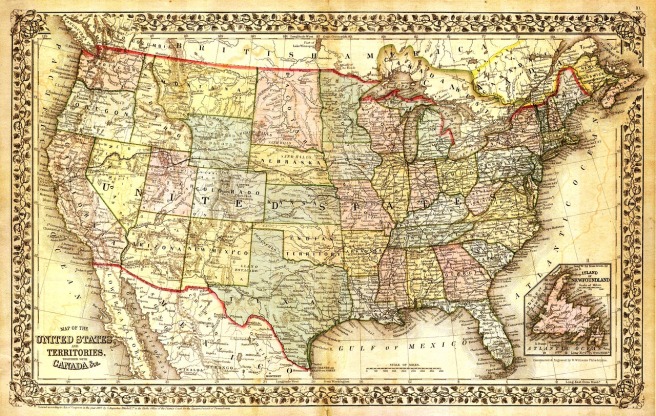
At its core, living our lives for Jesus is exciting. However, the everyday mundane can be boring! Chores, school, and work sometimes seem to be an endless grind. Thankfully, the everyday mundane is actually where we start using our gifts for God’s glory and where God trains us for the future ahead. God waits till we are grounded in Him before choosing us for larger responsibilities. To clarify, God never requires perfection; He requires someone who is willing to learn. We continue to grow in our relationship with God through our whole lives, yet being grounded in Christ is a prerequisite to God entrusting us with increased responsibility.
Here are seven simple things we can do to strengthen ourselves for God’s kingdom.
1) Work hard wherever you are.
Exciting opportunities can emerge at any time, but first we must be diligent in the everyday mundane tasks. Just look at Gideon. He was hard at work, threshing wheat, when an angel appeared! Gideon proved himself as a hard worker before God called him to lead the Israelite army. When we are diligent and responsible in everything we do, we open ourselves to larger responsibilities. As Jim Elliot once said, “Wherever you are, be all there.”
2) Learn leadership in everyday situations.
Moses spent forty years of his life living in the desert as a shepherd. The whole time, he was destined to be the deliverer of God’s people. First, he needed to learn leadership, and what better way than to oversee a bunch of sheep! Guarding the flock of sheep was a prerequisite to leading the Israelites through the wilderness. We must be willing to be faithful in the little things (like watching sheep) before we can be faithful in the bigger things. (Luke 16:10)
3) Build on your victories.
David, like Moses, was another faithful shepherd. While he was stuck in the fields watching sheep, he wisely spent his time growing closer to God. When he found himself staring into the face of a giant, he was already strong and confident in God. During his time protecting the sheep, he had single handedly killed a lion and a bear; thus, he had already seen God at work in his life. Remembering victories from the past gives us the courage and the faith to depend on God for future victories. David was strong in his faith long before he killed his giant.
4) Live a lifestyle of loyalty.
Practicing loyalty places you in the sweet spot for God to use you. For example, Ruth is in the lineage of Jesus despite the fact she was not even a Hebrew. Because of her faithfulness in serving her mother-in-law Naomi, she ended up in the right place to marry Boaz, thus grafting her into the bloodline of Jesus. When we are consistently loyal, opportunities will arise. God always rewards us for our loyalty, whether on earth or in Heaven
5) Take a risk on God.
One day, two enemy spies showed up on Rahab’s doorstep. Instead of betraying them, she promptly hid them and helped them escape the city. Her only stipulation was that they would protect her and her family. Without a doubt, hiding enemy spies is extremely risky, but apparently Rahab knew something about the God of the Bible. She was willing to risk her all on God and on the integrity of these two Hebrew spies. Her risk, based on solid information, saved her and her family. Sometimes in our lives we are faced with a choice that seems crazy. However, if we base our decision on God’s truth, then we cannot go wrong. After all, if God is for us, who can be against us?
6) Utilize your natural gifts.
Queen Esther saved the Jewish people through her direct influence on the Persian king. However, becoming his queen was no simple task! She was called to the palace along with all the other eligible virgins in the land. Despite the disadvantages, Esther shone out. Esther 2:7 describes her as being both, “lovely and beautiful”. Esther used her beauty for God’s glory, and because of her position, she prevented a mass genocide. We must learn to first acknowledge the natural gifts and abilities God has given us and then utilize them for His glory.
7) Don’t be afraid to ask others for help.
Nehemiah was a Jewish captive serving in Babylon as the king’s cupbearer. When he heard from a fellow Israelite that the walls of Jerusalem were in extreme disrepair, Nehemiah took decisive action. One of the very first things he did in his quest to rebuild the wall was asking the king (his boss) for supplies. Nehemiah’s boldness was rewarded and he was granted ample supplies. In our goals for God, we must not be afraid to ask others for help and assistance. Just like the king, often times people will be eager to assist, but we have to ask!
Your life is no different from the heroes of the Bible.
Just like everyone featured in the Bible, God has amazing plans for you and me. While we are in the everyday mundane, we must utilize our time effectively to train for use in God’s kingdom. We must learn to depend primarily on God, but also accept that other people will be a part of God’s plans for our lives. Continue to be faithful in your training, and gear up for the exciting life God has for you both now and in the future!


